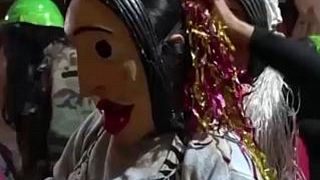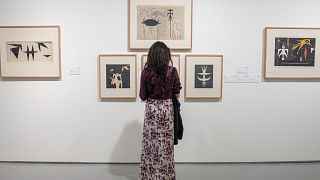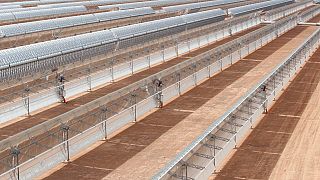Morocco
Named after its German founder, Hans Thiemann, "Cactus Thiemann Garden" is one of the largest of its kind in Africa.
In the 1960s, Thiemann brought cactus seeds and plants to Morocco from his native Germany, and planted them in Marrakech, where he found the soil and climate suitable for their growth.
Founded in 1964, the garden started with a limited selection of plants but has expanded over time.
"He chose Marrakech because of the weather. In that time, the weather was really perfect for cacti," explains the garden's manager and Hans Thiemann's daughter, Magdalena.
"And also, for the proximity between Europe and Marrakech, so he can still export his cacti worldwide."
Today, the garden includes more than 150 different species of cacti.
Cactus Thiemann Garden is known for its biodiversity, its plants vary in size and shape - from small cacti to giant plants that reach great heights.
"Today, we have more than 150 different varieties of cacti," explains Magdalena Thiemann.
"These 150 varieties of cacti can be sold in the whole (of) Morocco. They get adapted very well with the environment of Marrakech, of Morocco, also."
Cacti are highly adaptable to dry environments, which has allowed them to thrive in Marrakech's hot and dry climate.
Scientists say cacti are important elements of desert ecosystems as sources of food and water for flora and fauna.
They’re also a source of nourishment and building materials for local human populations.
Cactus Thiemann Garden relies on sustainable farming methods, plants are irrigated without wasting water.
It's particularly important in Marrakech, which suffers from water scarcity.
No chemicals or artificial fertilizers are used to maintain the health of soil and plants.
People commonly assume that cactuses are made to endure scorching heat, but even they can have their limits.
"This climate changing is also affecting cacti. We all think that cacti don't need water, but they do also, because it's not their native place," says Magdalena.
The farm attracts many visitors, especially tourists hoping to discover the cacti and enjoy the scenery.
In the middle of the garden, there's a truck once owned by Hans Thiemann, he used it when he brought his first cactus seeds to Morocco.
"It's the first thing he came with it to Morocco, and with this car, he discovered Marrakech, Morocco, and Africa also," explains Magdalena.













01:10
Ghana ends support to Western Sahara, backs Moroccan autonomy plan instead
Go to video
Ghanaian citizens can now travel to Morocco without a visa
01:09
United Kingdom backs Morocco's autonomy plan for Western Sahara
Go to video
"Trap, Neuter, Vaccinate, and Return", Morocco’s strategy to save stray dogs
Go to video
Rabat transformed into an open-air museum for annual street art festival
01:07
Oliver Laxe returns to Cannes with mystical drama "Sirât"